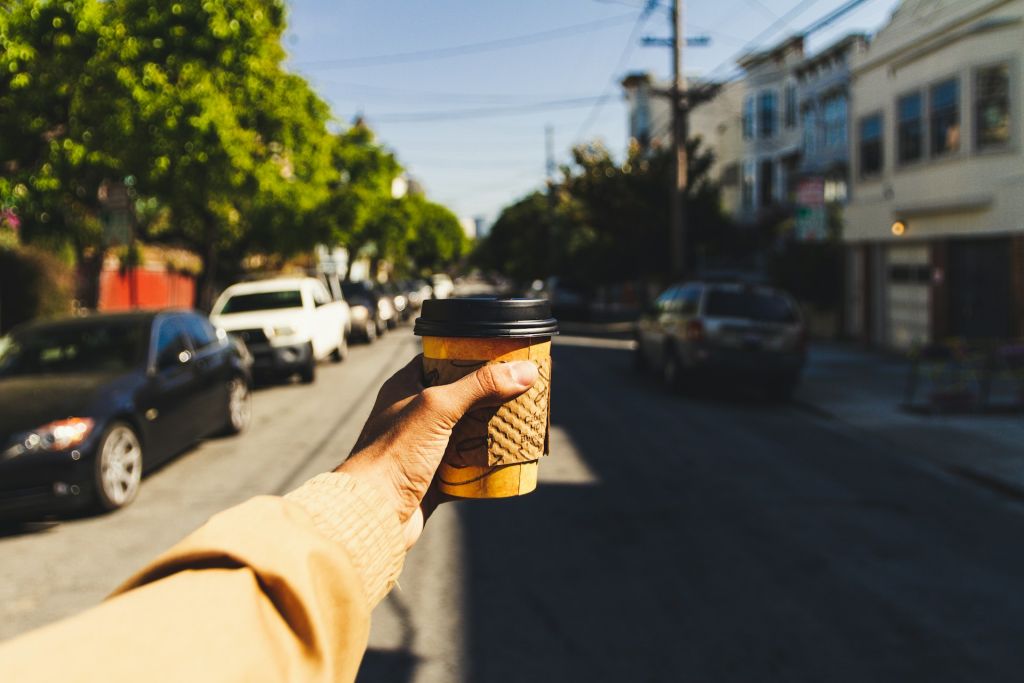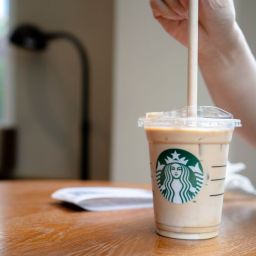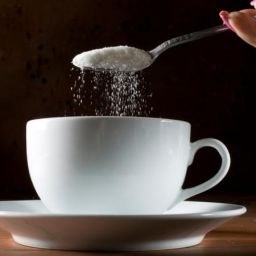
The term “cup of Joe” has been a popular phrase used to refer to a cup of coffee for many years. Its origins can be traced back to the early 20th century, specifically to the United States Navy.
According to one theory, the term “Joe” was a slang term used by sailors to refer to any average person or thing. Coffee, being a staple beverage consumed by Navy personnel, was also referred to as “Joe.” This connection between coffee and the nickname “Joe” eventually gave rise to the phrase “cup of Joe.”
Another theory suggests that the term “Joe” specifically references Josephus Daniels, who served as Secretary of the Navy from 1913 to 1921. It was during Daniels’ tenure that he implemented a number of reforms, including banning the consumption of alcohol on Navy ships.
As a result, coffee became the beverage of choice for sailors, and it is believed that the association between coffee and Daniels led to the term “cup of Joe” being coined. However, this theory has been largely debunked, as there is no solid evidence to support the claim that Daniels’ name directly influenced the term “cup of Joe.”
Buy your new Coffee Maker on Amazon now!
Naval connection: How the term “Joe” became synonymous with coffee
The term “cup of Joe” has long been used as a colloquialism for a cup of coffee. Its origins can be traced back to the early 20th century, specifically to the United States Navy. During this time, Admiral Josephus Daniels was appointed as Secretary of the Navy by President Woodrow Wilson.
Legend has it that Admiral Daniels implemented a number of policies intended to improve discipline and morality within the Navy. One such policy was the banning of alcohol onboard Navy ships.
In an attempt to improve morale and productivity, sailors were left with no choice but to turn to coffee as their beverage of choice. As a result, coffee became an integral part of the Navy’s daily routine.
It is believed that this is where the term “Joe” originated, as it was a common term used to refer to an average or ordinary person. Over time, “cup of Joe” became synonymous with coffee, not only within the Navy but also in the general population.
The influence of Josephus Daniels: Debunking the myth

Josephus Daniels, a former Secretary of the Navy, is often credited with implementing a ban on alcohol aboard naval vessels, leading to the popularity of coffee among sailors. However, this commonly held belief appears to be a myth.
While Daniels did indeed prohibit the consumption and distribution of alcohol on ships in 1914, there is no evidence to suggest that he imposed the coffee mandate from which the term “cup of Joe” supposedly arose.
Historical records indicate that long before Daniels assumed his position, sailors were already referring to coffee as “Joe.” This term may have originated from “java,” a nickname for coffee derived from the name of its most significant source, the Indonesian island of Java.
While Daniels’ influence on the naval regulations cannot be denied, attributing the term “cup of Joe” solely to his policies seems to be inaccurate. The true origins of this popular phrase lie in the language and culture of sailors long before Daniels’ tenure.
Buy your new Coffee Maker on Amazon now!
Slang evolution: Uncovering the linguistic transformation of “Joe”
The term “cup of Joe” has a long and intriguing history that dates back to the early 20th century. Originally, it was believed to have originated in the United States Navy, where coffee was a staple in the sailors’ diet.
The connection between coffee and the name “Joe” can be traced back to the naval tradition of referring to an average and ordinary person as “Joe.”
This association between the name and coffee eventually led to the common phrase “cup of Joe” to describe a serving of coffee.
However, recent research has challenged this popular belief and shed new light on the linguistic transformation of “Joe.”
It is now theorized that the term actually evolved from the slang word “jamoke,” which was a combination of “java” (another term for coffee) and “mocha” (a type of coffee bean).
Over time, this word morphed into “Joe” and became a widely used colloquialism for coffee. The exact origins and evolution of the term are still a subject of debate among linguists and coffee enthusiasts alike.
Coffee culture: Exploring the significance of nicknames in the coffee industry
The coffee industry is known for its rich history and vibrant culture. One aspect that adds to its allure is the plethora of nicknames associated with this beloved beverage.
These nicknames serve as a way to engage with coffee in a more personal and affectionate manner. They often reflect the unique characteristics, origins, or popular cultural references associated with different types of coffee.
From the classic “java” to the quirky “mud,” coffee nicknames have a way of resonating with people across the globe. These monikers not only add a sense of familiarity and camaraderie among coffee lovers but also contribute to the overall coffee experience.
Whether ordering a “cup of joe” at a local café or trying a “flat white” in an exotic destination, the use of nicknames enhances the enjoyment and connection to this beloved beverage.
Buy your new Coffee Maker on Amazon now!
Linguistic peculiarities: Examining other popular coffee-related phrases
Irish coffee, espresso, cappuccino – these are just a few examples of the numerous coffee-related phrases that have become part of everyday language.
Some of these phrases are derived from specific coffee drinks or preparation methods, while others have cultural or historical origins. Let’s delve into some of the linguistic peculiarities that have found their way into the world of coffee.
One popular phrase that often gets thrown around is “mocha.” Originating from the Yemeni port city of Mocha, this term refers to a type of coffee bean.
The Mocha bean is known for its distinct flavor profile, which is often described as being rich, chocolatey, and slightly fruity. Over time, the name “mocha” has been adopted to describe not only the beans but also various coffee beverages that incorporate chocolate, such as the famous Mocha Latte.
Another intriguing phrase in the coffee lexicon is “doppio” – an Italian term meaning “double.” In the world of coffee, a doppio refers to a double shot of espresso.
This term has gained popularity in coffee shops worldwide, allowing customers to order a stronger, more concentrated dose of caffeine. The doppio has become a go-to choice for those in need of an extra kick to start their day or to battle an afternoon slump.
Buy your new Coffee Maker on Amazon now!
Regional variations: Different terms for coffee around the world
In different parts of the world, coffee is known by various names and terms, reflecting the diverse cultures and languages that have developed over time.
One such example is in Italy, where the popular espresso is referred to simply as “caffe.” This term has become internationally recognized and is widely used in coffee houses worldwide.
Moving across the globe to Turkey, one encounters a unique coffee experience known as “Turkish coffee.” It is often referred to as “kahve” and is known for its distinct preparation method involving finely ground coffee beans boiled in a small pot called a “cezve.”
This strong and aromatic beverage has gained popularity not only in Turkey but also in many other countries, offering a taste of a distinctive coffee tradition.
These examples merely scratch the surface of the numerous regional variations in coffee terminology around the world. Each term carries its own cultural significance, adding depth to the rich tapestry of global coffee culture.
Understanding these differences allows us to not only appreciate the linguistic diversity of our world but also to connect with the diverse ways in which people have embraced and enjoyed coffee throughout history.
• In Italy, espresso is commonly referred to as “caffe.”
• Turkish coffee, known as “kahve,” is prepared using a unique method involving finely ground coffee beans boiled in a small pot called a “cezve.”
• These regional variations in coffee terminology reflect the diverse cultures and languages that have developed over time.
• The term “caffe” has become internationally recognized and is widely used in coffee houses worldwide.
• Turkish coffee, with its strong and aromatic flavor, has gained popularity not only in Turkey but also in many other countries.
• Understanding these different terms allows us to appreciate the linguistic diversity of our world and connect with the various ways people enjoy coffee.
Buy your new Coffee Maker on Amazon now!
Pop culture references: Coffee’s presence in literature, films, and music
In literature, coffee often plays the role of a companion, a stimulant, or a symbol of conversation. In many novels and stories, characters gather over cups of coffee to discuss their lives, share secrets, or simply find solace in each other’s presence.
For example, in “The Coffee Trader” by David Liss, the coffee trade in 17th-century Amsterdam becomes the backdrop for a thrilling tale of financial intrigue and personal betrayal.
Coffee also features prominently in the works of authors like Haruki Murakami, whose characters often find solace and contemplation in the rituals of making and drinking coffee.
Coffee’s presence in films often adds depth to characters or serves as a plot device. In the classic film “Casablanca,” Humphrey Bogart’s character, Rick, is frequently seen pouring cups of coffee for himself and others as he navigates the moral complexities of war and love.
Similarly, in the romantic comedy “You’ve Got Mail,” the characters played by Meg Ryan and Tom Hanks often meet in coffee shops, using coffee as a metaphor for their evolving relationship. Coffee’s versatility as a symbol and its ability to evoke emotions make it a powerful tool in cinematic storytelling.
In the realm of music, coffee has become a metaphor for various experiences and emotions. In the song “Black Coffee” performed by Ella Fitzgerald, the lyrics use the concept of drinking coffee to convey heartbreak and longing.
The chorus expresses the emotional turmoil of the singer, “I’m feeling mighty lonesome, haven’t slept a wink, I walk the floor and watch the door, and in between I drink black coffee.”
This song, along with many others, demonstrates coffee’s ability to capture the essence of human emotions and experiences in musical compositions.
Coffee’s presence in pop culture extends beyond literature, films, and music. From television shows to advertising campaigns, coffee has become an integral part of our daily lives and a symbol of our modern culture.
Whether it’s a group of friends gathering at a local coffee shop, a character sipping coffee in a pivotal scene, or a melody evoking the warmth of a morning brew, coffee’s subtle presence in pop culture reflects its enduring significance in our society.
Buy your new Coffee Maker on Amazon now!
What is the origin of the term “cup of Joe”?
Origins: Tracing the history of the term “cup of Joe”
How did the term “Joe” become synonymous with coffee?
Naval connection: How the term “Joe” became synonymous with coffee
Who is Josephus Daniels and what is his influence on coffee?
The influence of Josephus Daniels: Debunking the myth
How did the term “Joe” transform linguistically?
Slang evolution: Uncovering the linguistic transformation of “Joe”
What is the significance of nicknames in the coffee industry?
Coffee culture: Exploring the significance of nicknames in the coffee industry
Buy your new Coffee Maker on Amazon now!
What are some other popular coffee-related phrases?
Linguistic peculiarities: Examining other popular coffee-related phrases
Are there different terms for coffee in different regions?
Regional variations: Different terms for coffee around the world
How does coffee appear in literature, films, and music?
Pop culture references: Coffee’s presence in literature, films, and music
Read more about Product Review: Barisieur Coffee Alarm Clock Coffee Maker.
Can you provide examples of coffee’s presence in pop culture?
Pop culture references: Coffee’s presence in literature, films, and music
Read more about Product Review: Outin Nano Portable Electric RV Coffee Maker.
What are some coffee-related phrases specific to certain regions?
Regional variations: Different terms for coffee around the world









